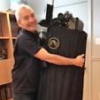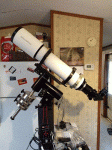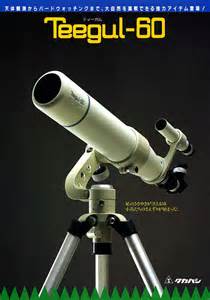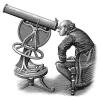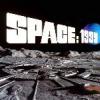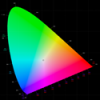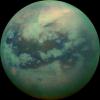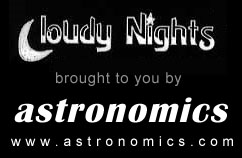Hello, I'm new to Cloudy Nights, seems like a solid source of information. Was hoping to get some help with my first telescope.
I'm interested in visual astronomy and decided to get a quality refractor. Astrophotography would be a plus, but not essential at this point. I own 7x35 binoculars and have been limited by power. I'm interested in astronomy, but would not even call myself an amateur yet. So far I've found jupiter, venus, m31 and pleiades with my binoculars without using any charts. Was hoping to see more with a more powerful instrument. There are no astronomy clubs near me. I would like a high end refractor, my budget is 2-5k. My preferences are:
1. Refractor. Objective lens 60 to 90mm. Would like something super portable. I'm intrigued by Takahashi sky 90 ii and cb60.
2. Must be portable and easy to set up. Something that could be used on a small mount and be stored on the mount in my living room and easily transported in my SUV.
3. I would like to use it for both astronomy and as a spotting scope during the day. About 50/50. Ease of use is essential.
4. Have not decided which mount to get, something simple at first, and eventually get an equatorial goto mount. Will appreciate advice on mounts after I get the telescope.
5. Also looking at Leica televid 77 and 82 with zoom eyepieces. How are these as astronomy tools ? Is there a big difference in the old 77mm vs 82?
So far my favorite telescope that meets most of my needs is Sky-90 version ii. I know they've been discontinued, and I know their reputation is less than perfect, but its small size, relatively large objective lens and portability are very impressive. Where can I find one for sale? Also, how would this scope be different from cb60? both positives and negatives. Concerning leica spotting scope, how greatly is it limited for astronomy when compared to the above Taks? Would you say 77mm leica televid is about the same quality as the 82mm? vs. Taks mentioned above? I've read about Tak 76mm, but think its too big/long for my taste. I plan on observing planets, the moon and major deep sky objects, m31, orion, etc. Nothing too great for now. Just to get into the hobby. I have almost no experience in the field, any advice will be much appreciated.
Edward





